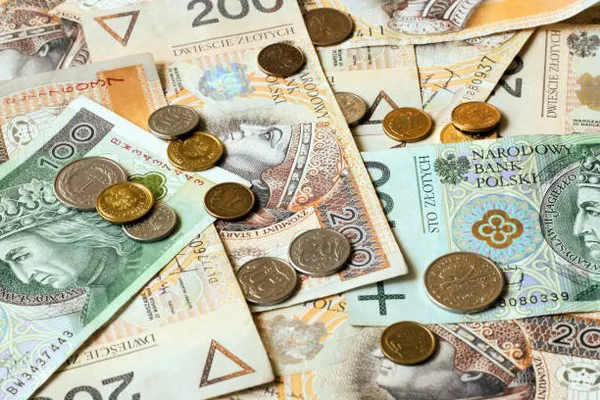In the realm of foreign exchange markets, the yen purchase rate holds significant importance for investors, traders, and policymakers alike. This article aims to provide a comprehensive overview of the yen purchase rate, exploring its definition, significance, influencing factors, and practical implications. Whether you’re a novice investor or a seasoned trader, understanding the intricacies of the yen purchase rate is essential for navigating the complexities of global currency markets.
What is the Yen Purchase Rate?
The yen purchase rate, also known as the yen exchange rate or yen buying rate, refers to the price at which one currency, typically the U.S. dollar (USD), can be exchanged for Japanese yen (JPY) in the foreign exchange market. It represents the cost of purchasing yen with another currency and is quoted as the number of yen per unit of the foreign currency (e.g., USD/JPY).
1. Importance of the Yen Purchase Rate
The yen purchase rate plays a crucial role in international trade, investment, and finance, as Japan is one of the world’s largest economies and a major player in global trade. Fluctuations in the yen purchase rate can have far-reaching implications for various stakeholders, including exporters, importers, multinational corporations, and policymakers.
2. Determinants of the Yen Purchase Rate
Several factors influence the yen purchase rate, including:
Monetary Policy: The monetary policy decisions of the Bank of Japan (BOJ), Japan’s central bank, can impact the yen purchase rate. Changes in interest rates, quantitative easing measures, and forward guidance can influence investor sentiment and the relative attractiveness of the yen as an investment currency.
Economic Data: Economic indicators such as gross domestic product (GDP) growth, inflation, unemployment, and trade balance data can affect market expectations and investor confidence, thereby influencing the yen purchase rate. Strong economic fundamentals may lead to appreciation of the yen, while weak data may result in depreciation.
Market Sentiment: Investor sentiment, risk appetite, and market dynamics play a significant role in determining the yen purchase rate. Factors such as geopolitical tensions, global economic uncertainty, and shifts in market sentiment can lead to fluctuations in currency markets and impact the value of the yen.
Interest Rate Differentials: Interest rate differentials between Japan and other major economies, particularly the United States, can affect the yen purchase rate. Higher interest rates in Japan relative to other countries may attract foreign capital inflows, leading to yen appreciation, while lower rates may result in depreciation.
Significance of the Yen Purchase Rate
The yen purchase rate holds immense significance for various stakeholders and has implications across multiple sectors:
1. International Trade
The yen purchase rate directly impacts the competitiveness of Japanese exports and imports in global markets. A weaker yen relative to other currencies can boost the competitiveness of Japanese exports by making them more affordable to foreign buyers. Conversely, a stronger yen may increase the cost of Japanese imports, potentially impacting domestic consumption and inflation.
2. Corporate Profits
For Japanese multinational corporations (MNCs) with significant overseas operations, fluctuations in the yen purchase rate can impact their profitability and financial performance. A weaker yen can enhance the value of overseas earnings when repatriated to Japan, potentially boosting corporate profits. Conversely, a stronger yen may reduce the value of overseas earnings when converted into yen.
3. Financial Markets
The yen purchase rate influences investor behavior and capital flows in global financial markets. Currency traders, hedge funds, and institutional investors closely monitor exchange rate movements and may engage in currency speculation or hedging strategies based on their expectations of future yen movements. Fluctuations in the yen purchase rate can also impact the performance of international equity, bond, and commodity markets.
4. Macroeconomic Policy
Policymakers in Japan closely monitor the yen purchase rate as part of their broader efforts to manage economic stability and promote growth. Exchange rate policies, intervention measures, and monetary policy decisions may be influenced by changes in the yen purchase rate and their potential implications for inflation, employment, and economic growth.
Practical Implications for Investors and Traders
Understanding the yen purchase rate is essential for investors and traders seeking to navigate the complexities of currency markets and capitalize on potential opportunities:
1. Currency Trading
Currency traders can profit from fluctuations in the yen purchase rate by engaging in speculative trading strategies such as spot trading, forward contracts, options, and futures. Technical analysis, fundamental analysis, and sentiment analysis are commonly used tools to analyze exchange rate movements and identify trading opportunities.
2. Risk Management
For multinational corporations, importers, exporters, and institutional investors with exposure to yen-denominated assets or liabilities, managing currency risk is crucial. Hedging strategies such as forward contracts, options, and currency swaps can help mitigate the impact of exchange rate volatility and protect against adverse movements in the yen purchase rate.
3. International Investment
Investors seeking to diversify their portfolios and capitalize on global investment opportunities may allocate capital to Japanese equities, bonds, or real estate assets. Changes in the yen purchase rate can impact the returns and risk profiles of international investments denominated in yen, highlighting the importance of currency risk management and asset allocation strategies.
4. Economic Forecasting
Economists, financial analysts, and policymakers use exchange rate forecasts and economic models to anticipate future movements in the yen purchase rate and assess their potential implications for the economy. Forecasting exchange rate trends requires analyzing a wide range of economic, financial, and geopolitical factors that influence currency markets.
See Also: 5 Essential Facts About the JPY in 2024
Conclusion
In conclusion, the yen purchase rate is a fundamental concept in global finance with far-reaching implications for international trade, investment, and financial markets. Understanding the determinants, significance, and practical implications of the yen purchase rate is essential for investors, traders, policymakers, and corporate decision-makers operating in an increasingly interconnected and dynamic global economy. By staying informed about exchange rate dynamics and adopting appropriate risk management and investment strategies, stakeholders can navigate currency markets effectively and capitalize on opportunities while mitigating potential risks associated with fluctuations in the yen purchase rate.


